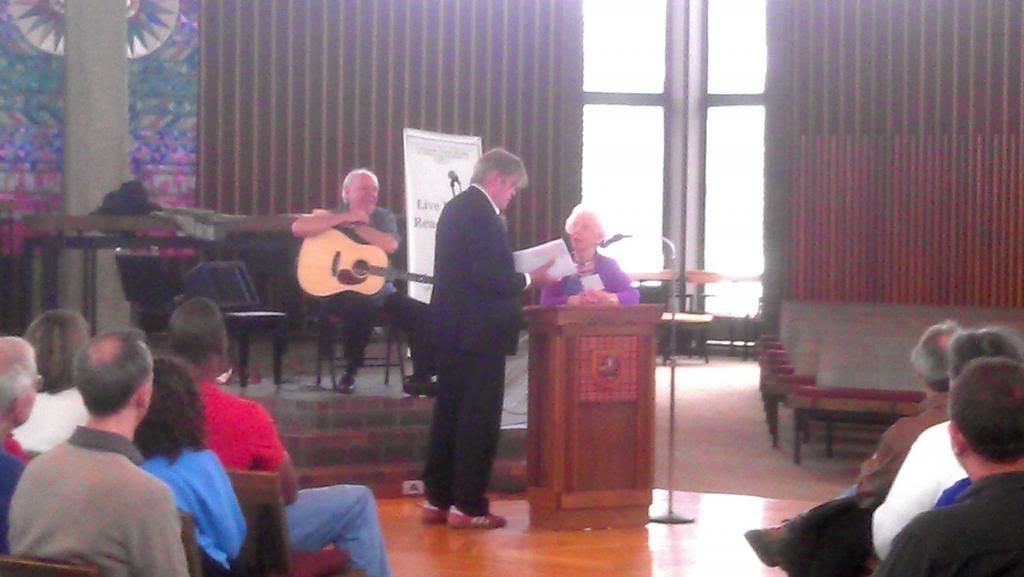Wednesday, June 19, 2013
Common Good "Amateur" Love Poems
It's hard to say what it is about poetry that invites amateurs to the plate. Outside of a contest, I mean. Most people, for instance, don't assume they're fit to fly a plane or run 23 miles, without practice. Then again, most people wouldn't think to compare poetry and aviation. For one thing, the odds of dying on a plane are less than one in a million, while those of dying a little each day one spends on poetry's as sure as rain in April, as they say. It's become something of a right of passage, limning lines of verse to those you love or, at least, smelled once at some point in junior high and--if fate has vehemently saved for you a life of romantic incredulity--even up through college; a kind of youth-fueled task on par with playing catch or learning how to build a fire. You don't have to be an expert, in other words, just be able to look up around the fire someone else knew how to start and confidently roll your eyes when asked if you can believe "that game" the other night. You can and you can't. I mean, how hard is it to catch a pop-up in left field? That all depends, you think, on where left field is.
The odd thing, though, apart from the fact that a man could watch his only son kick a baseball in the grass in order not to have to throw it, call it good and move on then to shaving, is that poetry, unlike the major leagues, maintains an air of apprenticeship; holds dear its naivete, if not the damn ball. "Everyone's a poet!" Not a motto, quite. At least not until it becomes socially acceptable to shout "Thank God It's Recycling Day!" up and down the halls of one's workplace. I couldn't say who coined the phrase, not jovially, in any case (one can hear Plato lamenting an afflictive rise of poets and distortedly asperse that "everyone's a poet," like sad Eeyore, glancing sideways at his house made out of sticks, before knocking back another shot of ouzo), but everyone from Patricia Smith, who in the recently released Passwords Primeval: 20 American Poets in their Own Words says, "Writing is our second throat. The only difference between someone who doesn't write and me is something in my life caused that throat to click open," to your average 3rd grade arts crawl organizer seems drawn to the idea, if not the reality.
Until recently, I fell into the camp of those who... how can I put this... sort of doubt that "everyone's" a poet. Children five and under, sure. You get to be "poets," and eat free on Monday nights at participating family restaurants. But I am, or was, afraid that anyone capable of holding pen to paper and, at the very least, acknowledging that, just because you can rhyme love with dove and heart with lark, doesn't mean you should, isn't too free to compare themselves to Plath just for delineating journal entries into anapestic trimeter. So then we announce this contest, to which the prefix "amateur" was, I thought, pretty clearly appended, and what happens? People, normal people; people you might well mistake for teachers, students, bloodline relatives, etc., start sending us these works of art. Unpublished works of art, perhaps, but artworks nonetheless. And anyway, long story short, 12 poems were selected, hung from banners like declarations of previous hockey championships, and read before a wildly attentive audience. And now they're up online.
"The poet is an imitator," Plato said. Well, actually, he said "the tragic poet is an imitator," but why kick a dead horse/state the obvious? The truth is we're all imitators. Framing selves on facebook, professing love or, worse, disgust, on cell-phones for the benefit of passers by, and all the while pretending not or fatally missing one's chance to care. Poets may be lots of things--lazy, broke, covered in hair--but few are truly apathetic. "Amateur" at least connotes an interest or attempt; an unfrenetic answer to the already confusing call for audience engagement, tempered by a dash of reverence like a whiskey watered down with Coke. Deference and humility should speak to us of courage, not its opposite. Even Junot Diaz said ambivalence, not confidence, is what startles his work to life; the challenge of the void most writers face each time they write, leaving brainless bravado on the field, where it almost certainly belongs.
Subscribe to:
Post Comments (Atom)


No comments:
Post a Comment